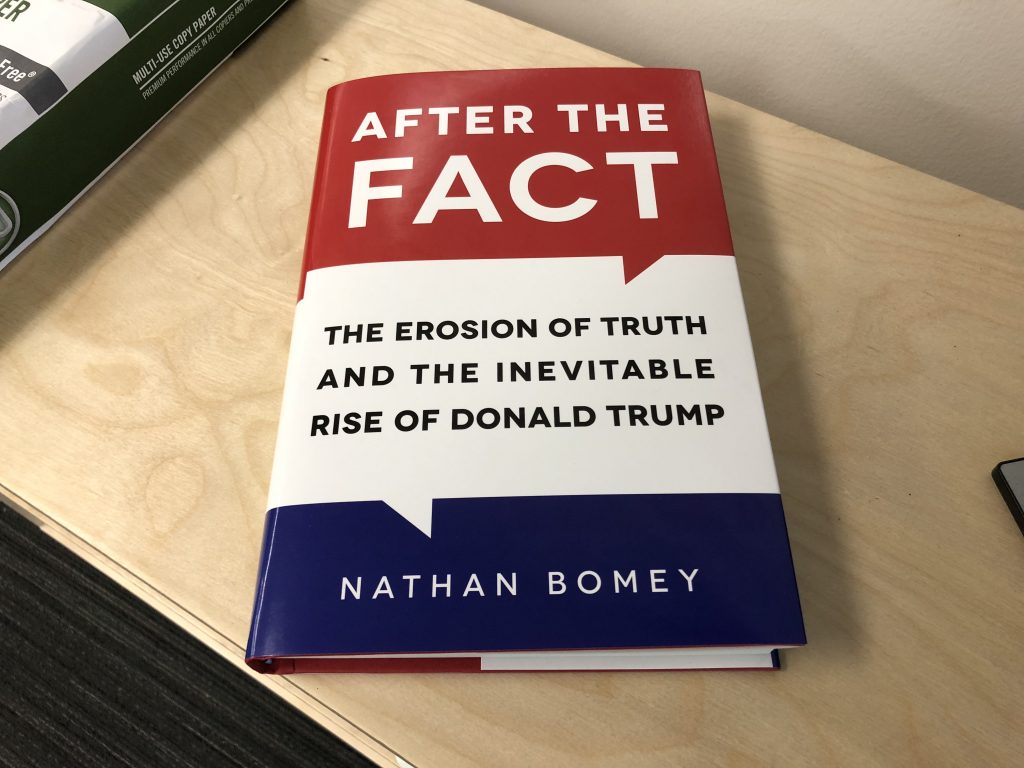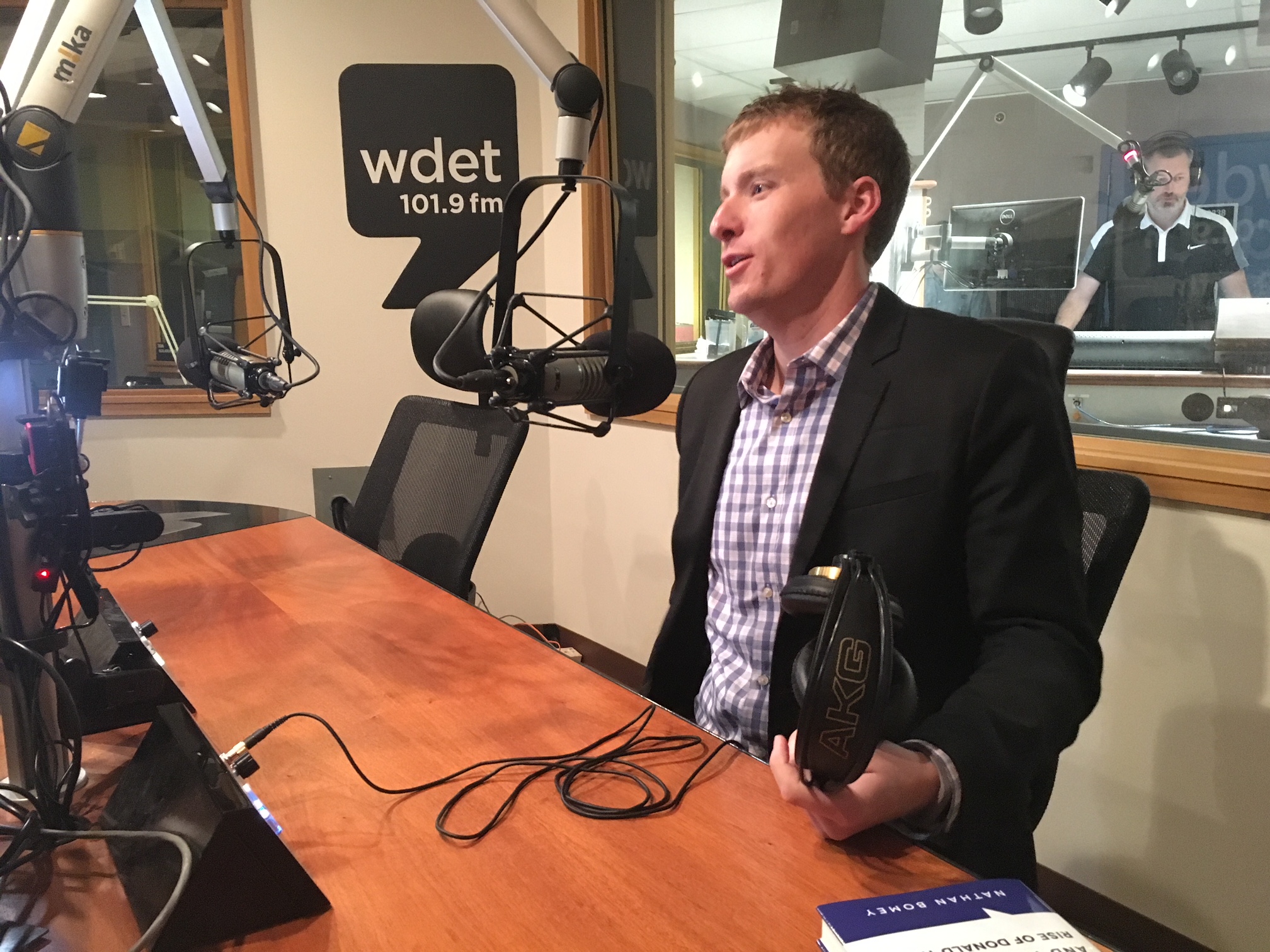Are We Living in a Post-Fact Society?
Nathan Bomey’s new book explores the “lack of depth” in consuming, understanding, and creation of media content.


Nathan Bomey covered Detroit’s bankruptcy as a reporter for the Detroit Free Press, and wrote the book on that saga: “Detroit Resurrected: to Bankruptcy and Back”.
In his new book, though, Bomey takes on the loss of common factual information and how that loss of accepted truth led to the discord that produced Donald Trump’s presidency.
The book is titled “After the Fact: The Erosion of Truth and Inevitable Rise of Donald Trump.” It is set to be released on Tuesday.
Bomey outlines how our behaviors and expectations and, in some cases, even our happiness are becoming shaped, and controlled by social media, modern communication, and the news we consume and share.
Bomey tells Detroit Today host Stephen Henderson the data show people only look at articles for a few seconds and then click away.
“Unfortunately, I do think many [news] outlets are chasing hits… and that’s leading to a lack of nuance [in reporting and understanding],” Bomey says. “That leads to a lack of depth.”
To hear more from Bomey on Detroit Today, click on the audio player above.
In Bomey’s book, he cites research and other work done by several academic institutions and think tanks. Here’s a list of some of them, linked to their homepages:
Harvard University’s Center for Research on Computation and Society
The Cultural Cognition Project at Yale Law School
Columbia University’s Tow Center for Digital Journalism
Harvard Kennedy School’s Shorenstein Center on Media, Politics and Public Policy
George Washington University’s Center for Cyber and Homeland Security
Information Technology and Innovation Foundation
University of Michigan’s Institute for Social Research’s Center for Political Studies
University of Pittsburgh’s Center for Research on Media, Technology, and Health
The Evolving Artificial Intelligence Lab at the University of Wyoming
University of Montreal’s Institute for Learning Algorithms
Uber’s Artificial Intelligence Labs
Pew Research Center’s Internet & American Life Project
Elon University’s Imagining the Internet Center
The International Fact-Checking Network at Poynter
